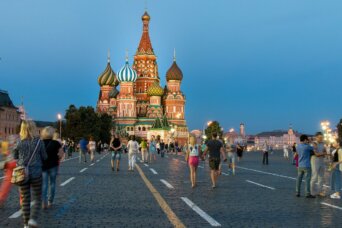- About
- Topics
- Picks
- Audio
- Story
- In-Depth
- Opinion
- News
- Donate
- Signup for our newsletterOur Editors' Best Picks.Send
Read, Debate: Engage.
| topic: | Good Governance |
|---|---|
| located: | Russia |
| editor: | Igor Serebryany |
Non-government organizations in Russia face the life-or-death choice of remaining independent or perishing under the collateral effect of government pressure and COVID-19 devastating advance.
The all-Russia congress of the NGOs held online the last Saturday exposed their vulnerability in the current hostile conditions when the public activists often have to make a lost-lost choice between bad and worse.
The forum participants (representing NGOs working in healthcare, labor issues, fair elections and privacy matters, local self-governing, small business support, environmental protection) attempted to find a common ground in how to deal with the state: as with a partner to cooperate or a patron to seek protection? As with a supervisor needed to be pleased or a threat needed to be avoided?
The conference's outcome showed that not only the NGOs often fail to find a common language with the state but they have been unable to find a common ground among themselves. That leads to the swift extinction of the non-commercial entities in Russia, one of the forum's speakers, professor of economics in the Moscow State University Natalia Zubarevich says.
"This is as impossible to find a common denominator for the NGOs as to unite all medical occupations under a single category. The state divides the NGOs according to their fields of activity, and those fields directly influence the government's approach to them. The state sees some of those fields as 'acceptable' for public self-governing while it considers others as its exclusive domain", she says.
The division is obvious enough. The state provides grants for so-called "patriotic" organizations even when their activity has little to do with public good (like the Night Wolves group which "specializes" in organizing pro-Kremlin biker shows). The grants have often been given to the NGOs doing "dirty job" in social services. But the government blatantly denies any support to the groups dealing with political and human rights issues, or even exercises administrative pressure on them.
"The NGOs, as a rule, do their job better and with lesser expenses than the corresponding governmental institutions. This is especially true when it comes to social protection projects. But Russian authorities approach any non-governmental activity with suspicion and jealousy. This is their idée fixe, to control every move of every citizen, and that paranoia just becoming stronger year in, year out", Zubarevich observes.
Besides having been in uneasy relations with the state, many NGOs are on unfriendly terms with each other, chairman of the National Union of the Non-commercial organizations Alexander Aigistov notes.
"The non-commercial sector has been divided since this spring when the Economic Ministry compiled a list of the NGOs entitled to apply for grants. For the reason unknown, only the NGOs which existed before 2017, were included. So all the NGOs founded after that date have been cut off state financing", he says.
The paradox is, the NGOs which didn't apply for the grants in the previous years abstained from seeking the state's support because they were able to survive on their own. However, when Covid's "new reality" came, their source of financing was exhausted in a blink of the eye. Those previously most successful organizations found themselves in a desperate situation overnight, because they can't now ask the state for support either.
"Those NGOs find themself on the margins now and people have been leaving them in thousands. That leads to the swift extinction of the non-commercial sector in Russia which didn't flourish even in better times", Aigostov laments.
According to the Justice Ministry, there were over 213 thousand of NGOs in this country in 2019. But the National Union of NCOs data shows that less than 30 thousand remaining alive in 2020. In the last five years, nearly half of the NGO's one million workers left.
Aigistov believes the state put a blind eye on the NGOs evaporation because the government cares only about its own, "governmental non-government", organizations, seeing the others as step children. That oxymoron means that there are some structures in Russia which formally belong to the non-government sector but receive guaranteed state financing.
The state rushes to replace the independent NGOs with "phantoms" under the auspices of the ruling United Russia party. In 2020, the party founded the 'Counter-COVID Corp" with a declared headcount of 61 thousand volunteers. The volunteers earned a thank-you address of the president Vladimir Putin, who is normally chary of praise.
"There's nothing bad that some organizations receive state support, providing they do some useful work for the society. The flip side is, that leads to the conflicts within the NGOs. The volunteers who do their jobs for free, answering the call of the heart, bear ill feelings to their state-appointed coworkers. In turn, the NGOs state-appointed chiefs can't find a common language with the informal leaders of their organizations. That diarchy damages the NGOs because their members waste energy on internal conflicts instead of doing their duties", Aigistov says.
Image by Michael Siebert

